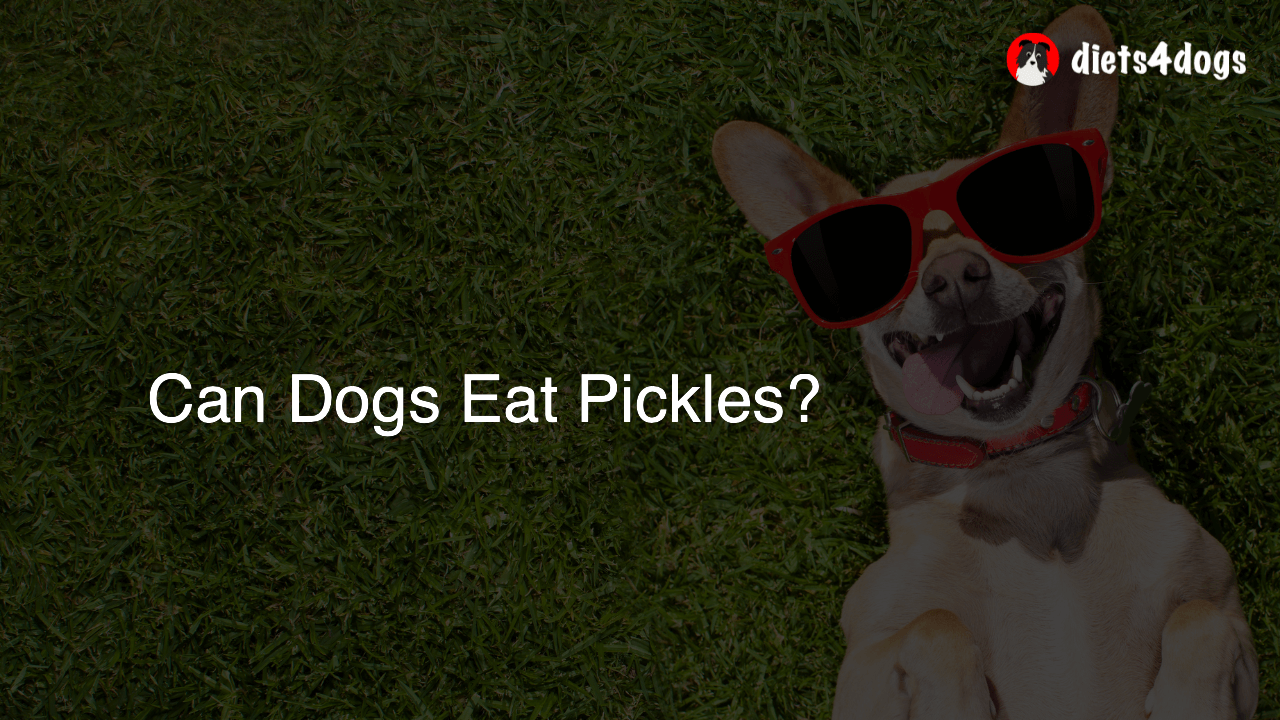Dogs are some of the most beloved pets in the world, and owners often treat them like family members. But when it comes to food, it’s important to know what’s safe and what isn’t. One food that often comes up in conversation is pickles. Can dogs eat pickles? It’s a common question, and one that deserves a closer look. Pickles are a popular snack, but can they be a part of your pup’s diet? Read on to find out more about the potential benefits and risks of feeding your dog pickles.
Can Dogs Eat Pickles?
Pickles are generally safe for dogs to eat, as long as they are not made with onions, garlic, chives, or any other ingredients that are toxic to dogs. Pickles should be given in moderation, as they are high in sodium and can cause an upset stomach. If pickles are made with xylitol, an artificial sweetener, they should be avoided, as it is toxic to dogs. Pickles should also be avoided if they are moldy or spoiled, as they can cause food poisoning.
Should Dogs Eat Pickles?
Pickles can be an occasional treat for dogs, as long as they are not made with any ingredients that are toxic to dogs. However, due to their high sodium content, pickles should only be given in moderation. If pickles are made with xylitol, an artificial sweetener, they should be avoided, as it is toxic to dogs. Pickles should also be avoided if they are moldy or spoiled, as they can cause food poisoning.
Is it Safe for Dogs to Eat Pickles?
Pickles can be safe for dogs to eat, as long as they are not made with any ingredients that are toxic to dogs. However, due to their high sodium content, pickles should only be given in moderation. If pickles are made with xylitol, an artificial sweetener, they should be avoided, as it is toxic to dogs. Pickles should also be avoided if they are moldy or spoiled, as they can cause food poisoning.
Can Pickles be Toxic to Dogs?
Pickles can be toxic to dogs if they are made with any ingredients that are toxic to dogs, such as onions, garlic, chives, grapes, raisins, alcohol, caffeine, citrus, coconut, raw or undercooked meat, eggs, avocados, nuts, especially macadamia nuts, xylitol, fatty foods, cooked bones, milk or dairy products, moldy or spoiled foods, salt, and processed foods. If pickles are made with any of these ingredients, they should be avoided.
Can Dogs Eat Pickles in Moderation?
Yes, dogs can eat pickles in moderation. However, due to their high sodium content, pickles should only be given in moderation. If pickles are made with any ingredients that are toxic to dogs, such as onions, garlic, chives, grapes, raisins, alcohol, caffeine, citrus, coconut, raw or undercooked meat, eggs, avocados, nuts, especially macadamia nuts, xylitol, fatty foods, cooked bones, milk or dairy products, moldy or spoiled foods, salt, and processed foods, they should be avoided.
Is There Any Circumstance Where Pickles is/are Not Safe for Dogs to Eat?
Yes, there are some circumstances where pickles are not safe for dogs to eat. Pickles should be avoided if they are made with any ingredients that are toxic to dogs, such as onions, garlic, chives, grapes, raisins, alcohol, caffeine, citrus, coconut, raw or undercooked meat, eggs, avocados, nuts, especially macadamia nuts, xylitol, fatty foods, cooked bones, milk or dairy products, moldy or spoiled foods, salt, and processed foods. Additionally, pickles should not be given in large amounts, as they are high in sodium and can cause an upset stomach.
Conclusion: Pickles Can be an Occasional Treat for Dogs
In conclusion, pickles can be an occasional treat for dogs, as long as they are not made with any ingredients that are toxic to dogs. However, due to their high sodium content, pickles should only be given in moderation. If pickles are made with xylitol, an artificial sweetener, they should be avoided, as it is toxic to dogs. Pickles should also be avoided if they are moldy or spoiled, as they can cause food poisoning. Therefore, it is important to be aware of the potential risks and benefits of feeding pickles to your pup.












